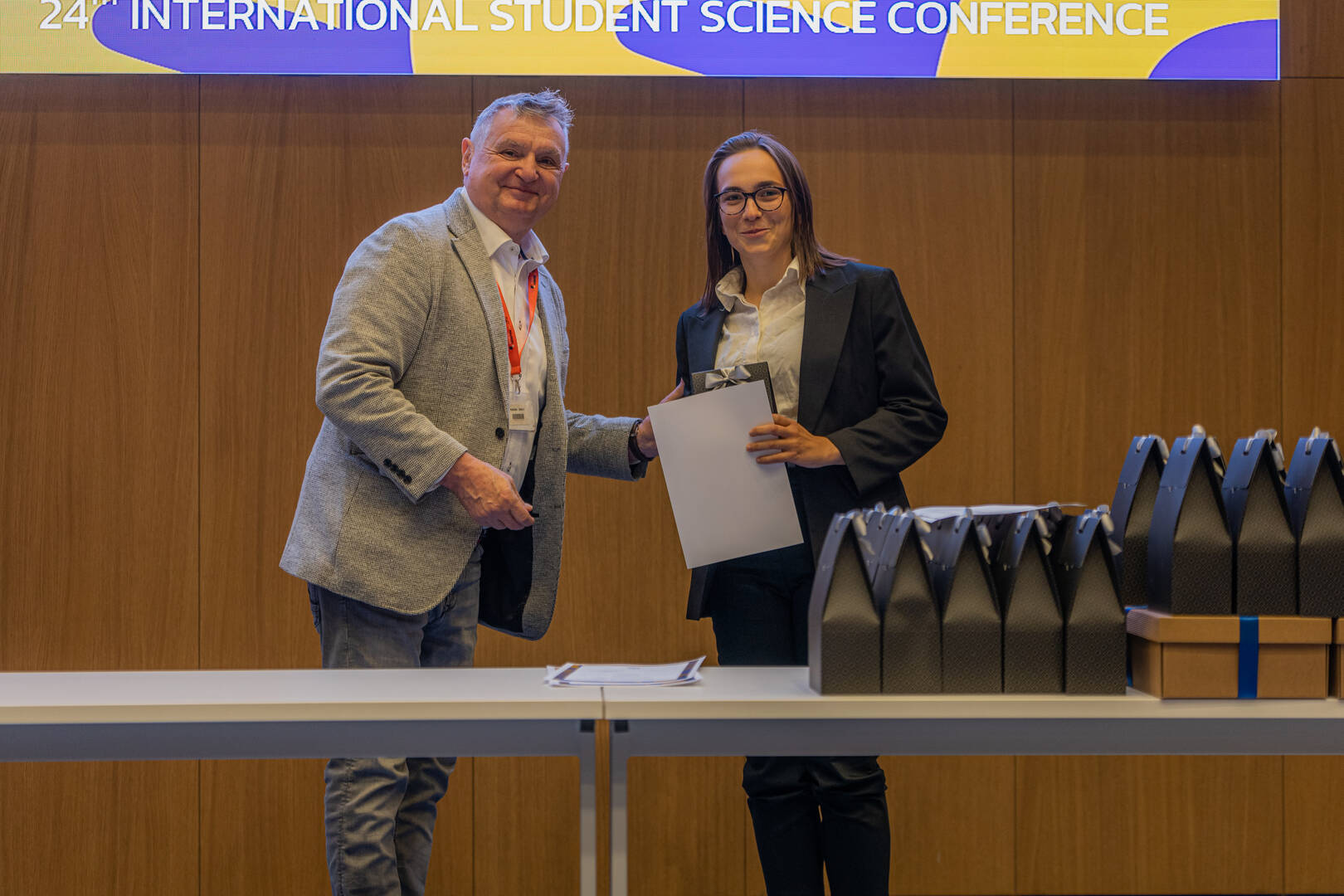Veronika Fülöp, fourth-year student of the Hungarian University of Sports Science (TF) was the only one to receive maximum points at the 24th International Student Science Conference. Her lecture held in the social science section earned her the SPRINT journal's special prize.
A difficult start
"I have competed twice in the university’s Student Science Conference (TDK) and once in the national one, but my international competition was clearly my most successful participation, which I am very proud of", says Veronika, whose supervisor was Dr Noémi Gyömbér, associate professor of the Department of Psychology and Sport Psychology. “I did not perform well at my first TDK competition at the time of Covid, but I won the second one and qualified for the national competition, where I did not achieve a place, because I was very nervous and I was asked difficult questions."
Why was not she successful? Her topic, "The appearance of homonegativity and discrimination in physical education and sport among university students", is not a typical research area, at least not in Hungary.
Another question that arises is why she wanted to compete with this topic?
"I chose it because I had a friend who was discriminated in high school PE classes because he was a gay. It left a deep impression on him and I immediately thought it would be good to understand how this could happen in sport. Just imagine, a bad experience like that can put you off sport and the valuable things that come with it."
Fortune favours the brave
As a next step, Veronika visited Dr Noémi Gyömbér, whom she met in psychology class and who was already her topic leader for her first TDK competition. She was happy to accept the invitation, but warned her student that she had chosen a difficult topic.
"I did a literature review, developed a questionnaire and sent it out to many, many male students participating in competitive sport. I was pleased to see that many of them returned the questionnaire. Fortunately, my presentation on the results of the research received a very good feedback at both the in-house and the international TDK, which proves to me that I managed to raise the research to the right level. The feedback was very appreciative that I had chosen such a topic and presented it to a large audience."
Surprising results
It's fascinating to listen to Veronika as she is describing the most worrying findings of the research: male competitive athletes are more likely to be homonegative and socially distant from those who are attracted to their own gender.
We also learn how the literature explains this. On the one hand, heteronormative or masculine environment has developed in competitive sport in the past due to the predominance of men. On the other hand, people think and see male competitive athletes as basically heterosexual, which makes them, in an attempt to meet this expectation, more prejudiced against those who prefer their own sex compared to female competitive athletes.

Do not change your winning team!
However, the story does not end here. The results of the research are likely to be published in a scientific article, and, led by Noémi Gyömbér, she is starting another research project, this time not among athletes, but on the attitudes of coaches and physical education teachers.
Which direction to go?
She has lots of plans and would probably be welcomed at the university's PhD program, but she would like to study at another university as well and even test her skills and knowledge as a PE teacher in a Hungarian school.
Whatever she decides, she won’t make a mistake. However, we would be delighted if she stayed with us at TF.
Photo by Kristóf Bükfa



